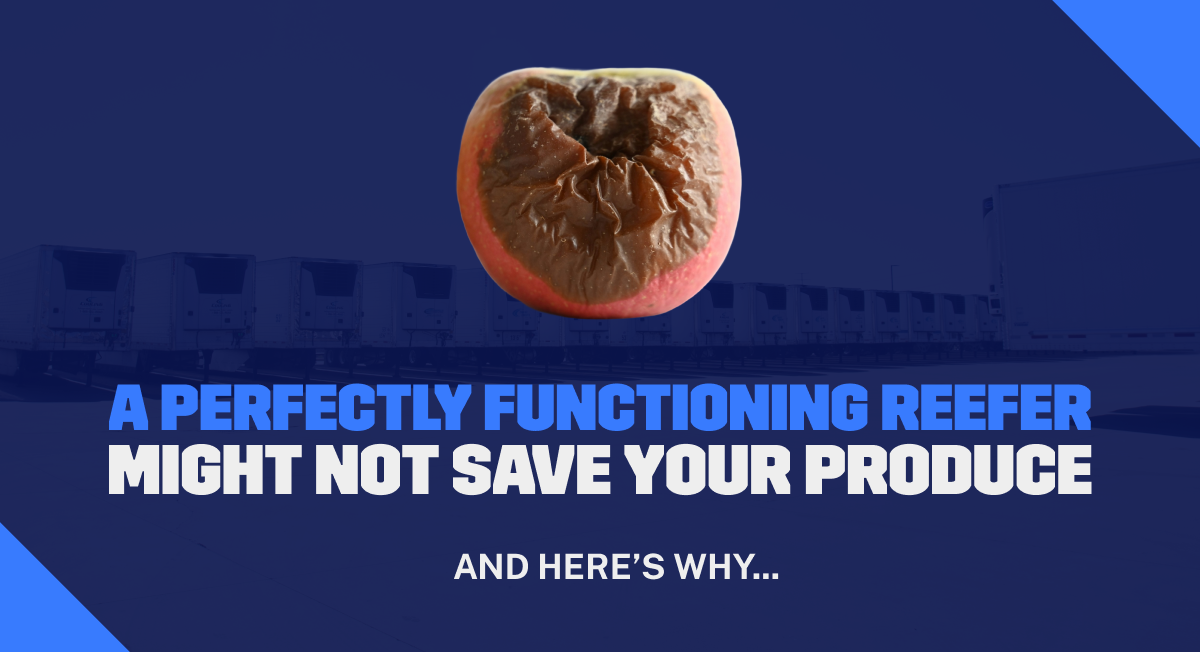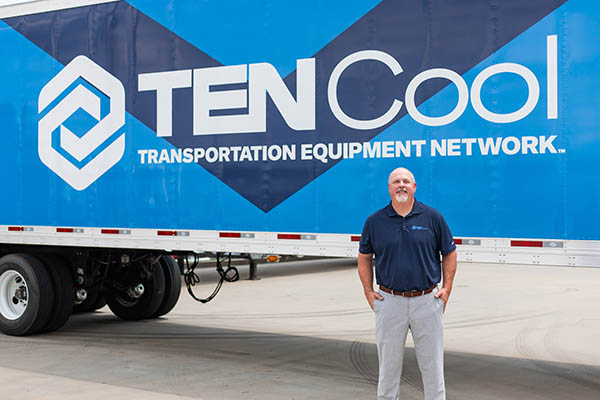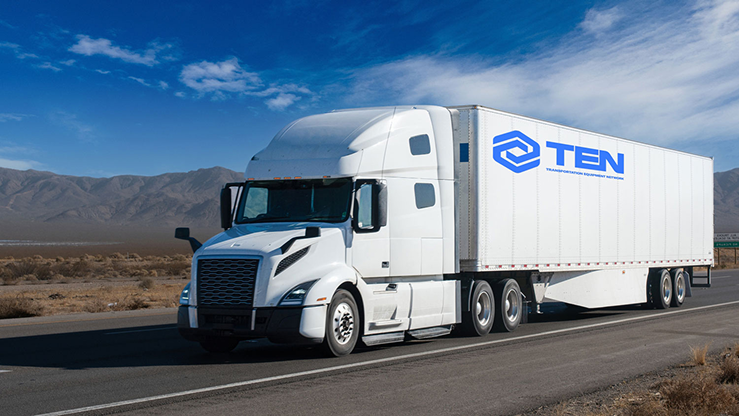Written by
Melanie MarchÉviter les pannes de moteurs de semi-remorques réfrigérées : la cause cachée des livraisons gâchées

Transporting fresh produce comes with its own set of challenges, and reefer engine breakdown is often the Le transport de produits frais comporte son lot de défis, et les pannes des moteurs des véhicules réfrigérés sont souvent les premiers responsables de la détérioration des marchandises à l’arrivée. Si les problèmes de moteur sont fréquents, en particulier pour les unités de plus de sept ans, ils ne constituent pas toujours la cause fondamentale.
Les problèmes communs des semi-remorques réfrigérées : au-delà du moteur
Avant de tirer des conclusions hâtives, il est essentiel de prendre en compte d’autres éléments, tels que :
- les joints d’étanchéité
- les filtres à huile et à air
- les ouvertures d’aération et les conduits d’air
Si le problème persiste en dépit de la vérification de ces composants, la frustration peut facilement s’installer. Après tant d’investissements dans l’entretien, pourquoi votre unité de réfrigération tomberait-elle en panne sans avertissement? Il ne s’agit pas seulement d’un revers émotionnel; des échecs répétés de livraison peuvent ternir la réputation de votre entreprise, susciter des critiques négatives et entraîner des pertes de clients.
Le facteur négligé : les bonnes techniques de chargement
Un facteur souvent négligé est la manière dont les produits sont chargés dans la semi-remorque réfrigérée. De nombreuses entreprises optent pour l’empilage au sol afin de maximiser l’espace et la commodité. Toutefois, cette méthode obstrue les voies de circulation d’air essentielles, ce qui entraîne une température inégale et une détérioration des produits.
Bonnes pratiques pour le chargement des produits
Pour éviter ce problème, suivez ces bonnes pratiques :
- Utilisez des palettes : veillez à ce que l’air puisse circuler librement autour de la charge pour assurer un refroidissement uniforme.
- Maintenez un espace d’air suffisant : laissez de l’espace entre le haut de la cargaison et le plafond et abstenez-vous de charger les produits contre les murs ou les portes afin d’éviter le fonctionnement en courts cycles.
- Évitez de faire fonctionner l’unité en laissant les portes ouvertes : les portes fermées empêchent la chaleur extérieure de pénétrer dans l’unité.
Ces petits ajustements peuvent grandement améliorer la qualité des produits pendant le transport, préservant ainsi la réputation de votre entreprise.

Gestion du parc de véhicules à température contrôlée : quand passer à la vitesse supérieure
Même avec les meilleures pratiques, les unités réfrigérées commencent généralement à poser des problèmes au bout de cinq à sept ans. L’entretien régulier devient de plus en plus coûteux et les pannes fréquentes peuvent perturber vos activités.
La location : une solution économique
L’achat de nouvelles semi-remorques réfrigérées tous les deux ans peut mettre de la pression sur votre trésorerie en raison de la fluctuation de la valeur marchande des unités d’occasion. Envisagez plutôt la location comme solution de rechange. Avec le contrat de location opérationnelle de TIP, vous pouvez bénéficier des avantages suivants :
- Un équipement régulièrement mis à jour : Vous recevrez de nouvelles semi-remorques réfrigérées tous les cinq à sept ans.
- Réduction des coûts d’entretien : L’entretien régulier et les réparations sont couverts par TIP.
- Flexibilité opérationnelle : Augmentez ou réduisez votre parc en fonction de la demande du marché sans engagement financier à long terme.
- Service routier d’urgence accessible en tout temps : Obtenez une assistance partout en Amérique du Nord pour résoudre rapidement les problèmes et garder vos conducteurs sur la route.
La location permet non seulement de maintenir votre parc à jour, mais aussi de réduire les problèmes opérationnels et d’améliorer votre capacité à répondre efficacement aux demandes des clients. En mettant en œuvre ces stratégies, vous pouvez garantir la qualité de vos livraisons, protéger la réputation de votre entreprise et gérer plus efficacement votre parc de véhicules réfrigérés.
Featured
TEN Cool annonce un système de conversion amovible intérieur en instance de brevet pour les semi-remorques

TRENDING ARTICLES

TEN (Transportation Equipment Network) nomme Hooman Yazhari au poste de chef de la direction

TEN (Transportation Equipment Network) désigne Peter Lynch au poste de chef des finances

TEN (Transportation Equipment Network) nomme Nathan Smith chef de la direction par intérim
CATEGORIES
TEN
TEN Cool
